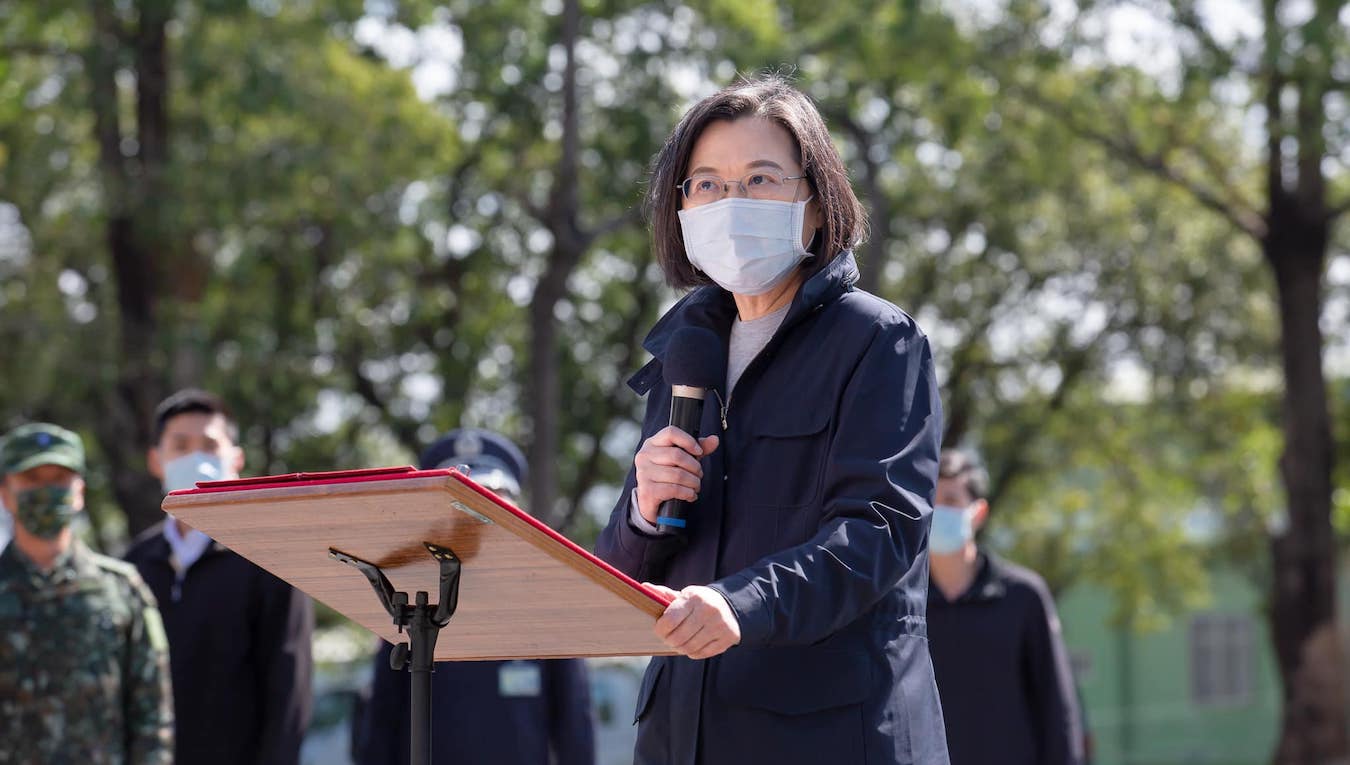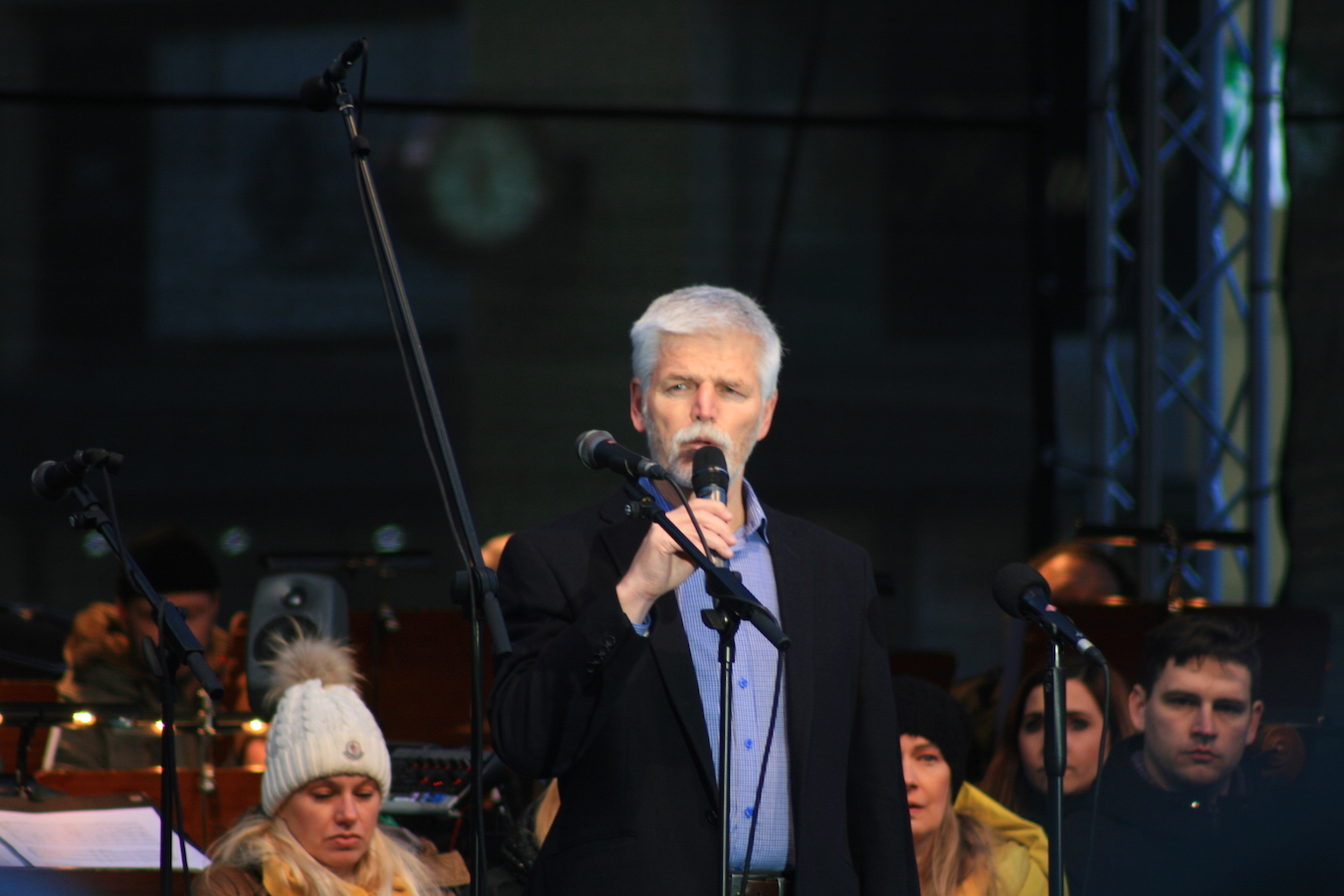by Brian Hioe
語言:
English
Photo Credit: Tsai Ing-wen/Facebook
THE TSAI ADMINISTRATION has sought to tout a phone call between President Tsai Ing-wen and Petr Pavel, the president-elect of the Czech Republic, as a diplomatic breakthrough. Namely, this signals stronger ties between Taiwan and the central European country.
The phone call comes after several years of strengthening ties between the Czech Republic and Taiwan. In September 2020, Taiwan saw a visit by an 89-member diplomatic delegation. Among the members of this delegation were Czech Senate president Milos Vystrcil and Prague mayor Zdenek Hrib. This took place during the COVID-19 pandemic, as a result of which the visit took place within a “diplomatic bubble.” During the visit, Vystrcil and Hrib met with high-level Taiwanese politicians including President Tsai Ing-wen, Minister of Foreign Affairs Joseph Wu, then-Premier Su Tseng-chang, and Vice President William Lai.
 President Tsai Ing-wen. Photo credit: Tsai Ing-wen/Facebook
President Tsai Ing-wen. Photo credit: Tsai Ing-wen/Facebook
During the visit, representatives of Czech firms held 260 meetings with Taiwanese companies. Among possible avenues for economic cooperation discussed included direct flights between Prague and Taipei from China Airlines, and the Cooperative Bank and Export-Import Bank setting up new branches in the Czech Republic. Memorandums of understanding were inked between the National Taipei University of Technology, National Tsing Hua University, and Tunghai University with the University of Chemistry and Technology Prague.
Significantly, during the visit, Vystrcil declared that “I am Taiwanese” during a speech, echoing American president John F. Kennedy’s famous “Ich bin ein Berliner” speech during the Cold War. On the other hand, Hrib can probably be credited as the Czech politician who had done the most to advance Taiwan-Czech ties in prior years, breaking off a sister city agreement with Beijing to ink an agreement with Taipei instead in January 2020. Hrib previously visited Taiwan in March 2019.
Before this visit, Czech Senate president Jaroslav Kubera had planned to visit Taiwan before these plans were cut short by his death of a heart attack in January 2020. Milos Vystrcil became Senate president afterward.
A year after the visit by the Czech delegation, in October 2021, foreign minister Joseph Wu embarked on a multi-stop tour of Europe that included The Czech Republic, Lithuania, Poland, and Slovakia. The visit served as a display of strengthening ties between Taiwan and both central European and eastern European countries. Among the possibilities for economic cooperation that Taiwan held out to eastern European countries was semiconductor development, a notable prize.
Either way, the Czech Republic is already a major trade partner for Taiwan. Among European countries, the Czech Republic sees the fourth-largest investment by Taiwan, with Acer, AU Optronics, Asus, and FoxConn having factories located in the Czech Republic.
Pavel has defended his phone call with Tsai, emphasizing Czech Republic’s sovereignty to conduct relations with other countries, and that its One China Policy is not that of China’s. The Tsai administration has suggested that this represents an accomplishment for its efforts to expand Taiwan’s international space, as another phone call between Tsai and a president-elect.
 Czech president-elect Petr Pavel. Photo credit: Martin Strachoň/WikiCommons/CC BY-SA 4.0
Czech president-elect Petr Pavel. Photo credit: Martin Strachoň/WikiCommons/CC BY-SA 4.0
Pavel’s willingness to take a phone call from Tsai before taking office is a rebuke toward the outgoing administration of President Milos Zeman, who was more accommodative toward Russia and China. By contrast, Pavel is more pro-Ukraine and more supportive of ties with western powers.
Indeed, preceding actions by Vystrcil and Hrib were also signaling in Czech domestic politics. In building ties with Taiwan on the basis of what they touted to be common values, these were actions intended as a rebuke toward Zeman’s policies.
More broadly, then, does one observe how geopolitical alignments are drawn in the sand both in Europe and Asia. Alignment with Taiwan for central and eastern European countries may be with trade ends in mind, as pertaining to semiconductor cooperation or other means of cooperation, but also for the sake of indicating alignment with western powers. Beyond the Czech Republic’s position in central Europe, this has been the pattern with eastern European countries, most notably Lithuania, whose initial expressions of support for Taiwan during the pandemic through vaccine donations and other gestures seemed intended to signal alignment with the US and western European powers over Russia–well before the war in Ukraine broke out.

